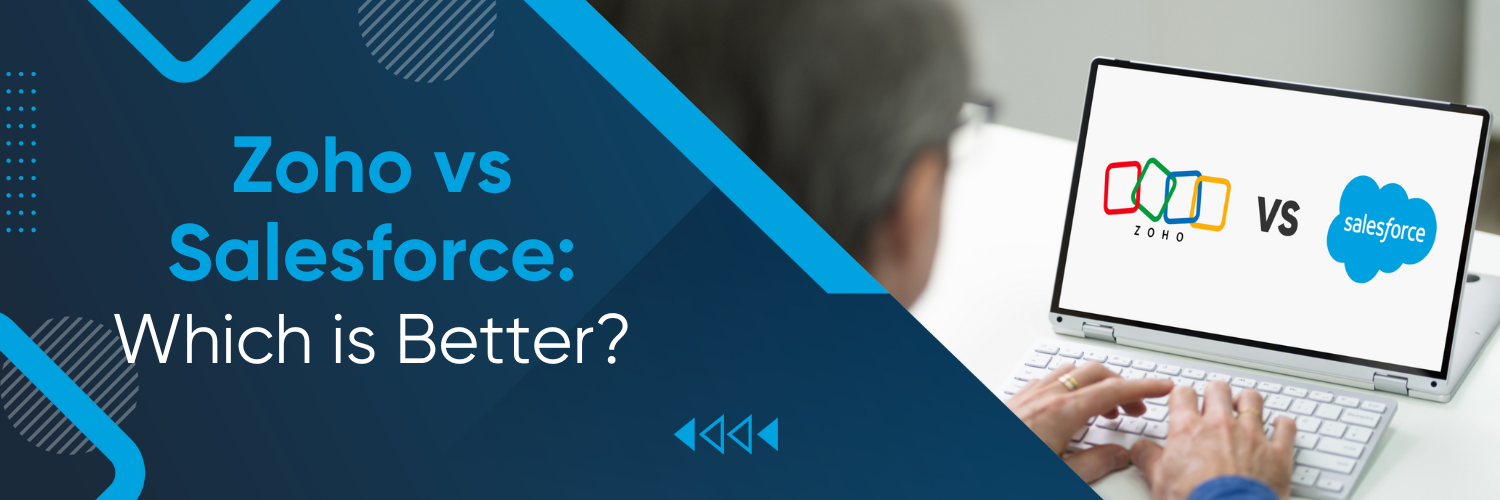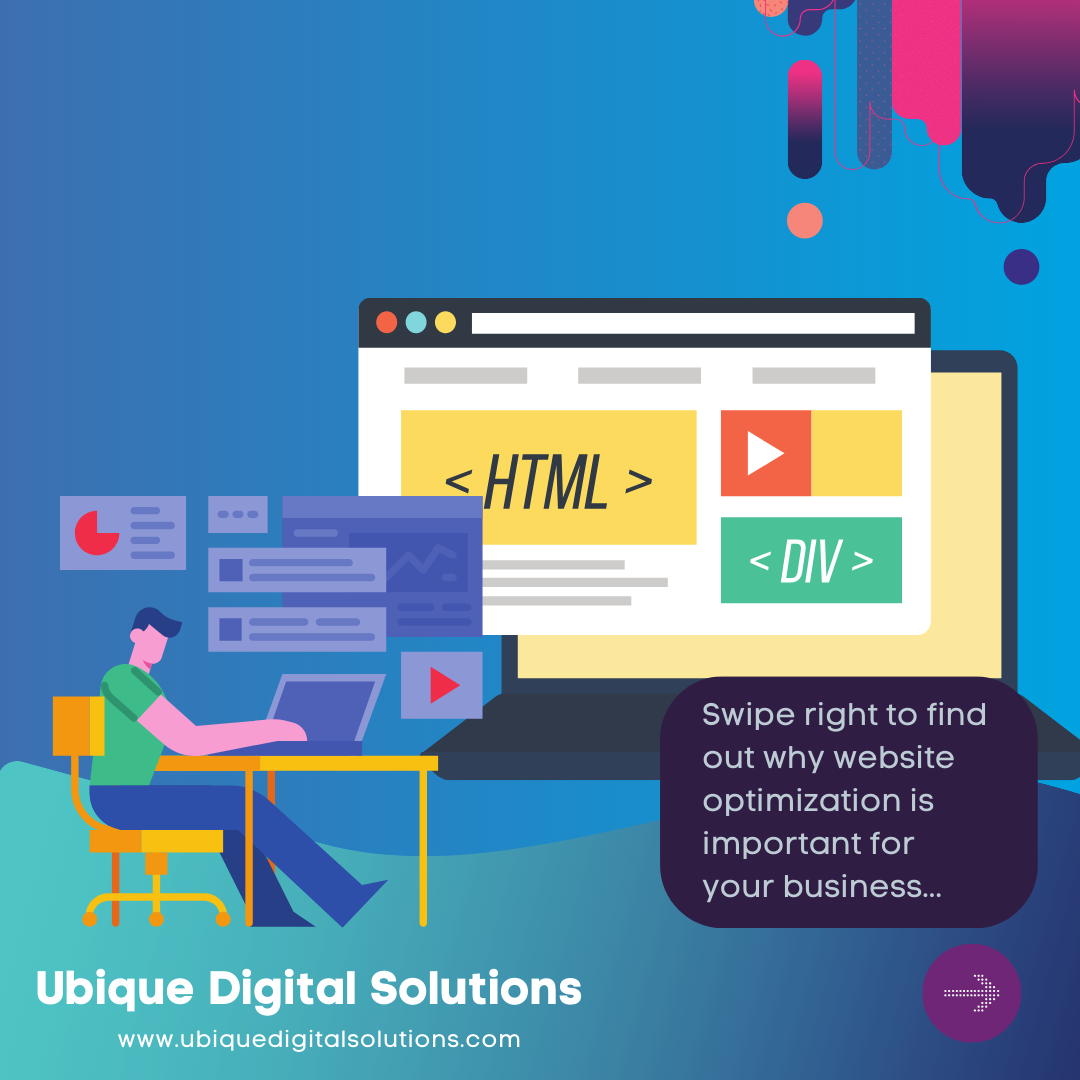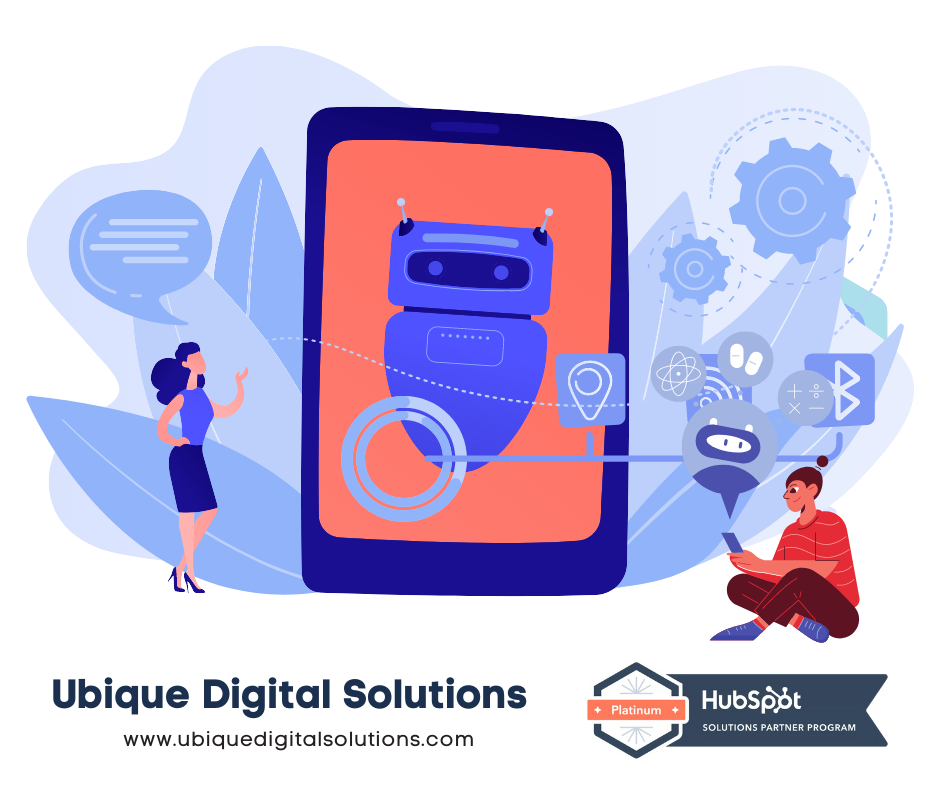Zoho and Salesforce
In today’s fast-paced business environment, where managing customer relationships is paramount, the choice of CRM can make or break your success.
In this in-depth comparison, we will dissect two heavyweights in the CRM arena: Zoho and Salesforce. Whether you’re a startup looking to efficiently nurture leads or a multinational corporation seeking a comprehensive CRM solution, this guide is designed to help you make an informed decision.
Choosing the Right CRM
Selecting the right CRM software is akin to choosing the perfect tool for a craftsman. The consequences of your choice ripple through your entire organization, affecting sales, customer service, marketing, and ultimately, your bottom line. CRM systems are the backbone of customer-centric businesses, enabling you to:
- Manage Customer Data: Store and access vital customer information, creating a centralized repository for your team.
- Improve Communication: Foster better communication within your team, ensuring everyone is on the same page regarding customer interactions.
- Boost Sales: Streamline your sales process, automate repetitive tasks, and identify growth opportunities.
- Enhance Customer Service: Deliver exceptional customer service by tracking inquiries and resolving issues promptly.
- Analyze Data: Gain insights from data analytics to make informed decisions and refine your strategies.
- Scale Your Business: As your company grows, a scalable CRM system can grow with you, adapting to your changing needs.
Need help with your CRM implementation? Click to Get Started.
Pricing: Zoho vs Salesforce
Pricing is often a critical factor in choosing a CRM system. Let’s break down the pricing structures of Zoho and Salesforce.
Aspect | Zoho | Salesforce |
| Pricing Plans |
|
|
| Scalability and Customization | Zoho’s pricing plans allow for scalability, enabling businesses to upgrade as their needs grow. Customization options are available in higher-tier plans. | Salesforce offers scalable plans suitable for small businesses to large enterprises. Higher-tier plans provide extensive customization options to tailor the CRM to specific requirements. |
| Free Plan | Zoho offers a Free plan with basic CRM functionality, making it accessible for startups and small businesses. | Salesforce does not have a free plan, which might be a consideration for smaller businesses with tight budgets. |
| Additional Costs | Zoho may have additional costs for certain features or add-ons beyond the chosen plan, such as email integration or advanced analytics. | Salesforce often involves additional costs for add-ons, integrations, and advanced features, which can increase the overall expense. |
| Trial Period | Zoho typically offers a 15-day free trial for its paid plans, allowing users to test the features before committing. | Salesforce provides a 30-day free trial, giving users a more extended period for evaluation. |
Features
Aspect | Zoho | Salesforce |
| Core CRM Features |
|
|
| Advanced Features |
|
|
| Customization | Customization options are available in higher-tier plans, allowing businesses to tailor the CRM to their unique needs. | Extensive customization capabilities, including custom objects, fields, and processes, with a focus on enterprise-level customization. |
| User Interface | User-friendly interface with a straightforward design. | User-friendly, but may have a steeper learning curve for some users due to its extensive features. |
| Mobile Apps | Offers mobile apps for iOS and Android devices, enabling users to access CRM data on the go. | Provides mobile apps for iOS and Android with a comprehensive mobile experience. |
| Integrations |
| Boasts a vast ecosystem of integrations through the Salesforce AppExchange, with numerous industry-specific apps. |
| AI and Automation | Offers Zia, an AI-powered assistant for predictive sales analytics and workflow automation. | Features Einstein AI, which provides predictive analytics, AI-driven insights, and automation capabilities. |
| Marketing Automation | Provides marketing automation features in the form of Zoho MarketingHub, allowing for integrated marketing and sales efforts. | Offers Salesforce Marketing Cloud for comprehensive marketing automation and email marketing. |
| Customer Service | Includes Zoho Desk for customer support and Zoho CRM Plus for a complete customer experience solution. | Provides Salesforce Service Cloud for robust customer service and support management. |
| E-commerce Integration | Offers integration with Zoho Commerce for e-commerce businesses. | Provides Commerce Cloud for comprehensive e-commerce integration and management. |
Both Zoho and Salesforce offer a wide array of features to cater to the needs of businesses across different sizes and industries. The choice between the two will depend on your specific requirements, budget, and how well the features align with your business processes.
User Interface and Ease of Use
Aspect | Zoho | Salesforce |
| User-Friendly Interface | Zoho CRM is known for its user-friendly interface, featuring an intuitive layout that makes navigation straightforward. | Salesforce also offers a user-friendly interface but may have a steeper learning curve for some users due to its extensive feature set and customization options. |
| Customization | Zoho provides customization options, allowing users to tailor the interface to their preferences and specific business needs. | Salesforce is highly customizable, offering extensive options to adapt the CRM interface to unique business processes. This level of customization can be an advantage for larger enterprises but may require more effort to configure. |
| Dashboard and Views | Zoho offers customizable dashboards and views, enabling users to create personalized layouts and reports. | Salesforce provides customizable dashboards and views, allowing users to create detailed reports and gain insights. |
| Mobile Access | Both Zoho and Salesforce offer mobile apps for iOS and Android devices, ensuring that users can access CRM data on the go. | Salesforce’s mobile app provides a comprehensive mobile experience, while Zoho’s mobile app offers convenient access to key CRM features. |
| Learning Resources | Zoho offers extensive learning resources, including documentation, video tutorials, and a user community, making it easier for users to get started and troubleshoot issues. | Salesforce also provides robust learning resources, including Trailhead, an interactive online learning platform, and a vast community of users and experts. |
| Training and Onboarding | Zoho offers onboarding and training services to help users set up and optimize their CRM systems efficiently. | Salesforce provides various training and onboarding options, including guided setup and access to Salesforce-certified consultants for assistance. |
| User Support | Zoho’s user support includes email, phone support, and a knowledge base, with response times varying based on the plan. | Salesforce offers multiple tiers of customer support, including phone, email, and chat support, with faster response times for higher-tier plans. |
Integrations and Compatibility
Aspect | Zoho | Salesforce |
| Third-Party Integrations | Zoho supports a wide range of third-party integrations, allowing users to connect their CRM with popular apps like G Suite, Office 365, MailChimp, and more. These integrations enhance workflow efficiency and expand functionality. | Salesforce boasts a vast ecosystem of integrations through the Salesforce AppExchange, one of the largest marketplaces for business apps. Users can access thousands of apps tailored to specific industries and business needs. |
| Industry-Specific Integrations | Zoho offers industry-specific integrations to cater to various sectors, such as healthcare, real estate, finance, and e-commerce. These integrations are designed to address unique industry requirements. | Salesforce’s AppExchange includes a wide array of industry-specific apps and solutions, making it suitable for businesses in various sectors, including healthcare, retail, financial services, and more. |
| API and Developer Tools | Zoho provides robust API and developer tools, enabling businesses to create custom integrations and applications. This flexibility is particularly beneficial for organizations with specific integration needs. | Salesforce offers extensive developer resources, including APIs, SDKs, and a developer community. Developers can build custom apps and integrations to extend the CRM’s functionality. |
| Compatibility with Other Software | Zoho’s CRM integrates smoothly with other Zoho software products, such as Zoho Books, Zoho Analytics, and Zoho MarketingHub, providing a comprehensive suite of business tools. | Salesforce also offers a range of complementary software products, such as Salesforce Marketing Cloud and Salesforce Service Cloud, to create an integrated ecosystem for sales, marketing, and customer service. |
Customer Support
Aspect | Zoho | Salesforce |
| Support Channels | – Zoho offers customer support through multiple channels, including email, phone, and chat. – Users can also access a knowledge base with documentation, tutorials, and frequently asked questions (FAQs). | – Salesforce provides various support channels, including phone, email, and chat support. – The Salesforce Help Center offers comprehensive documentation, tutorials, and a vibrant community forum where users can seek help from experts. |
| Response Times | – Response times for Zoho’s customer support can vary depending on the user’s subscription plan. Higher-tier plans often receive faster responses. – Response times for critical issues are generally quicker. | – Salesforce offers varying response times based on the chosen plan. Higher-tier plans typically enjoy faster response times and priority support for critical issues. |
| User Community | – Zoho has an active user community where users can share experiences, seek advice, and troubleshoot issues together. | – Salesforce boasts a large and engaged community of users and experts on the Salesforce Success Community, making it a valuable resource for troubleshooting and best practices. |
| Onboarding and Training Services | – Zoho offers onboarding and training services to help users set up and optimize their CRM systems efficiently. | – Salesforce provides guided setup and access to Salesforce-certified consultants for personalized onboarding and training, ensuring users get the most out of the CRM. |
| User Reviews and Testimonials | – Users can find reviews and testimonials from other Zoho CRM users, providing insights into real-world experiences and use cases. | – Salesforce has a substantial presence in the CRM market, resulting in numerous user reviews and testimonials across various platforms, offering valuable feedback. |
Security and Compliance
Aspect | Zoho | Salesforce |
| Data Encryption | Zoho CRM employs data encryption measures, including SSL encryption during data transmission and encryption at rest to protect sensitive customer data. | Salesforce also uses strong encryption, with SSL encryption during data transmission and encryption at rest. |
| Access Controls | Zoho CRM provides role-based access control, allowing administrators to define user roles and permissions to ensure data privacy and security. | Salesforce offers robust access control with granular permissions, enabling organizations to configure fine-grained user access based on roles and profiles. |
| Compliance Certifications | Zoho CRM complies with various industry standards and regulations, including GDPR, HIPAA, SOC 2 Type II, and more. – Zoho maintains certifications and undergoes third-party audits to ensure compliance. | Salesforce adheres to industry-specific compliance standards, such as GDPR, HIPAA, SOC 2 Type II, and more. Salesforce also undergoes regular third-party audits to maintain compliance. |
| Data Backup and Recovery | Zoho CRM offers data backup and recovery options, allowing users to restore data in case of accidental deletion or data loss. | Salesforce provides data backup and recovery features, ensuring that critical customer data can be recovered in the event of data loss or corruption. |
| Incident Response | Zoho has an incident response protocol in place to address data breaches and security incidents promptly. | Salesforce has an incident response team that follows established protocols to manage and mitigate security incidents efficiently. |
| Security Features | Zoho CRM includes security features like two-factor authentication (2FA), audit logs, IP restrictions, and session management to enhance data security. | Salesforce offers a comprehensive set of security features, including 2FA, event monitoring, and robust identity and access management. |
| User Training and Awareness | Zoho emphasizes user education and awareness to prevent security vulnerabilities, offering training resources to educate users about best practices. | Salesforce provides resources and training to help users understand security best practices and reduce the risk of security incidents. |
Performance and Scalability
| Aspect | Zoho | Salesforce |
| Performance for Small to Medium-Sized Businesses | Zoho CRM generally offers good performance for small to medium-sized businesses. Users can access essential features with minimal latency. | Salesforce is suitable for businesses of all sizes, including small to medium-sized enterprises (SMEs). It provides efficient performance with responsive features for SMEs. |
| Performance for Large Enterprises | Zoho CRM may have limitations in handling extremely large datasets or complex enterprise-level processes. Performance may vary based on the specific Zoho plan and infrastructure. | Salesforce is designed to handle the demands of large enterprises, offering robust performance and scalability for extensive datasets and complex business operations. |
| Scalability for Growing Businesses | Zoho’s pricing plans allow businesses to scale up as they grow, making it a flexible choice for expanding companies. The scalability options depend on the specific Zoho plan chosen. | Salesforce offers scalability options that can accommodate the growth of both small and large enterprises. It can adapt to increasing data volumes and additional users seamlessly. |
| Data Volume and Storage | Zoho CRM plans may have storage limitations depending on the chosen plan. Users should consider data volume requirements when selecting a plan. | Salesforce offers ample data storage and provides options for additional storage as needed, making it suitable for organizations with large data volumes. |
| Customization and Complexity | Zoho CRM is known for its ease of use and may be preferred by businesses looking for straightforward CRM solutions. It is a suitable choice for less complex processes. | Salesforce offers extensive customization options and can accommodate highly complex business processes. It may require more time and effort to configure due to its advanced features. |
Benefits of Using Zoho and Salesforce
Both platforms have their own strengths and cater to different business needs. Let’s take a look at the benefits of each:
Benefits of Using Zoho CRM:
- Affordability: Zoho is often seen as a more affordable option compared to Salesforce, especially for small and medium-sized businesses. They offer a free edition and their paid plans are competitively priced.
- User-Friendly Interface: Many users find Zoho’s interface to be intuitive and easy to navigate.
- Comprehensive Suite: Zoho offers an entire suite of business applications (Zoho One) that can be integrated with CRM, including tools for email, collaboration, finance, HR, and more.
- Customizability: Zoho allows for significant customization, enabling businesses to tailor the CRM to their specific needs.
- Built-in AI Assistant: Zoho’s AI assistant, Zia, provides predictive sales analytics, lead scoring, and even sentiment analysis.
- Integration Capabilities: While it emphasizes its own suite of tools, Zoho CRM can also integrate with many third-party applications.
- Global Presence: Zoho supports multiple languages and currencies, making it suitable for businesses operating in various regions.
Benefits of Using Salesforce:
- Industry Leader: Salesforce is a well-established name in the CRM world and is considered an industry standard by many large enterprises.
- Scalability: Salesforce is known for its ability to scale with businesses, catering to the needs of both small businesses and large corporations.
- Robust Features: Salesforce offers a comprehensive set of features that cover sales, marketing, service, and beyond.
- Advanced Analytics: Salesforce’s Einstein Analytics offers advanced AI-driven insights, predictions, and recommendations.
- Ecosystem and Marketplace: Salesforce has a vast ecosystem with the AppExchange marketplace, where users can find a wide variety of third-party applications and integrations.
- Customization and Development: With its proprietary language (Apex) and platform (Force.com), businesses can develop custom solutions tailored to their specific needs.
- Training and Resources: Salesforce provides a wealth of resources, training materials, and certifications through its Trailhead platform.
- Community: Salesforce has a large, active community of users, developers, and partners that share knowledge, best practices, and solutions.
- Continuous Innovation: Salesforce frequently rolls out updates and new features, ensuring that the platform remains at the forefront of the CRM industry.
Conclusion
After our in-depth exploration of Zoho and Salesforce, it’s clear that both CRM solutions have their strengths and are well-suited for different business scenarios. Zoho offers a user-friendly interface and cost-effective plans, making it an excellent choice for small to medium-sized businesses looking for an efficient CRM system. On the other hand, Salesforce shines as a scalable and highly customizable solution, making it the go-to option for large enterprises with complex processes and extensive data needs.
Your decision should be driven by your unique business requirements, budget constraints, and growth aspirations. We recommend carefully assessing your organization’s needs and considering the insights we’ve provided to determine which CRM aligns best with your goals.
To further enhance your CRM experience and ensure a seamless transition or optimization of your chosen solution, we invite you to follow up and partner with Ubique Digital Solutions. Our team of experts specializes in CRM implementation, customization, and support. With our guidance, you can unlock the full potential of your CRM system and take your business to new heights. Contact us today.
FAQs
Q: Which CRM is more affordable, Zoho or Salesforce?
Zoho tends to be more budget-friendly, especially for small to medium-sized businesses, with a range of pricing plans that offer cost-effective options. Salesforce, on the other hand, can be more expensive, particularly for larger enterprises.
Q: Which CRM is better for large enterprises with complex processes?
Salesforce is often the preferred choice for large enterprises due to its scalability, extensive customization options, and ability to handle complex business processes and data volumes.
Q: Can I integrate third-party applications with both Zoho and Salesforce?
Yes, both Zoho and Salesforce support integrations with a wide range of third-party applications. Salesforce’s AppExchange is particularly known for its extensive library of integrations.
Q: Are there industry-specific solutions available for these CRMs?
Yes, both Zoho and Salesforce offer industry-specific solutions and integrations to cater to various sectors, including healthcare, finance, real estate, and more.
Q: Which CRM offers better customer support?
Both Zoho and Salesforce provide various customer support channels. The level of support you receive often depends on the specific plan you choose. Salesforce offers personalized onboarding and training services for a fee.










